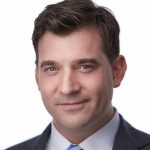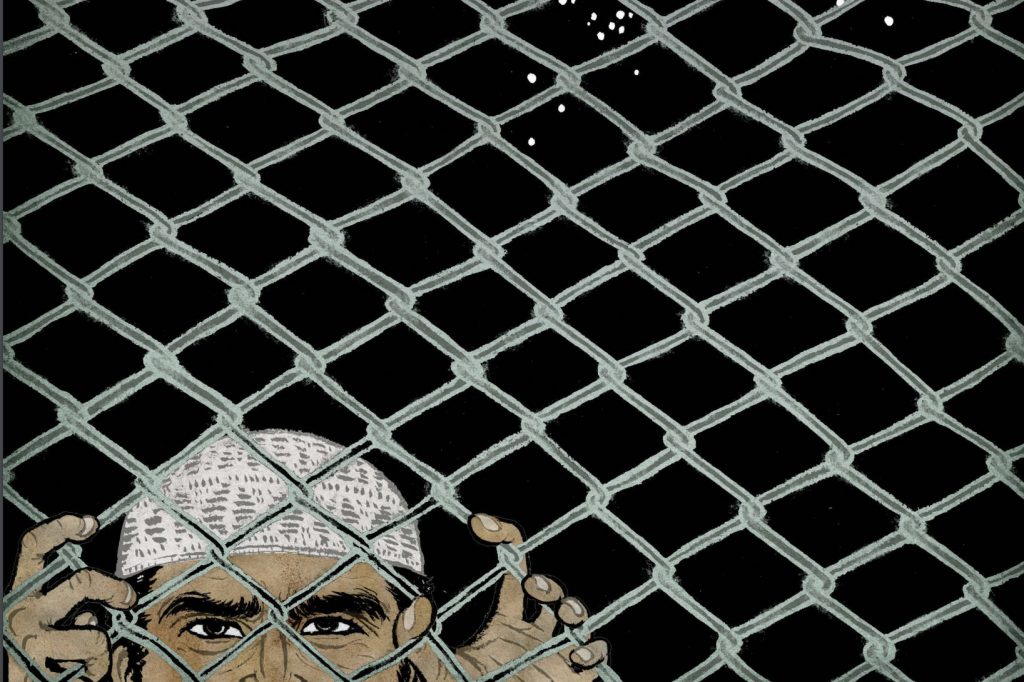When Michel Paradis agreed over email to help with a case representing a Guantanamo Bay detainee, he didn’t expect to find himself working in an office in downtown Washington, DC, doing it as a career.
Paradis serves on the Military Commission Defense Organization inside the Department of Defense. The commission’s primary responsibility is to act, in essence, as the public defender for the Guantanamo detainees. When Paradis took the job, he thought his work would be finished at the end of the Bush administration, when there were talks of folding the camp in Cuba. But the work continues today.
Paradis spoke with the International Law Society at BC Law on November 16 about his path to the job and how he finds meaning behind his work in an event titled “The Legacy of Guantanamo Bay.”
Guantanamo Bay detention camp has been the center of political and humanitarian controversy since its inception in 2002. Nearly 800 prisoners have passed through its doors, located in Cuba. Because the prison is in Cuba, it sits outside of many protections afforded by the United States Constitution when prisoners are tried within the confines of the US. The prison became notorious for indefinite detention without trial and torture tactics.
President Obama vowed to close the camp, but faced strong political opposition. While the number of detainees significantly decreased, the camp never closed. President Donald Trump later signed an executive order keeping the prison open indefinitely, while President Joe Biden has vowed to close it while he is in office.

While Paradis thinks the work the commission does has been impactful, he says there is tragedy in the speed and efficiency of the process to try those accused who are sitting in Guantanamo. Twenty years after the horrific events of 9/11, the commission is no closer to trial on the alleged perpetrators than they were two decades ago, Paradis said.
“We’ve never been able to find closure in our court systems in the aftermath of 9/11,” Paradis said. “There is something profound about American culture that looks to our justice system as a way of not simply making judgments about guilt or innocence, but actually just providing closure.”
As a New Yorker, this is personal for Paradis. Families of the victims look to the justice system for closure. Americans in general are looking for justice. And the system is at a stalemate. But despite this setback, Paradis’ team has found success and fulfillment behind the role they play within the broader legal system.
“We describe our jobs as defending the rule of law,” Paradis said of his commission. “I think there is a strong element of truth to that. We judge societies not by how we treat the most powerful but how we treat the least among us. Those who it is the easiest to despise.”


